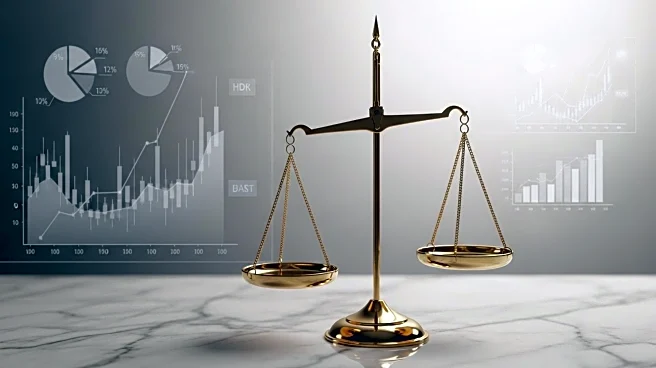What's Happening?
Russian President Vladimir Putin has acknowledged the challenges faced by the Central Bank in reducing interest rates without triggering rapid price hikes. Speaking at the Eastern Economic Forum in Vladivostok, Putin highlighted the risk of inflation if rates are lowered too quickly. The Central Bank is currently grappling with inflation, aiming to return to desirable indicators. Despite a slowdown in annual inflation to 8.8% in July, it remains above the target range. The economic situation is compounded by high defense spending and weak civilian investment, leading to technical stagnation as noted by Sberbank's head, German Gref.
Why It's Important?
The admission of economic struggles by Putin underscores the challenges facing Russia's economy amidst geopolitical tensions and internal fiscal policies. The high interest rates and inflation impact consumer spending and investment, crucial for economic recovery. The situation reflects the broader economic implications of Russia's military actions and sanctions, affecting both domestic and international economic stakeholders. The acknowledgment of these issues by top officials indicates potential shifts in economic policy, aiming to stabilize the economy while managing inflation. The economic downturn poses risks to Russia's long-term growth and stability, with potential repercussions for global markets.
Beyond the Headlines
The economic challenges faced by Russia highlight the limitations of war-driven expansion and the need for balanced fiscal policies. The focus on defense spending at the expense of civilian investment raises ethical and strategic questions about national priorities. The situation may prompt discussions on sustainable economic strategies and the role of international sanctions in shaping Russia's economic landscape. The acknowledgment of inflation concerns by Putin suggests a potential reevaluation of economic policies, aiming to address the underlying issues affecting growth and stability.









